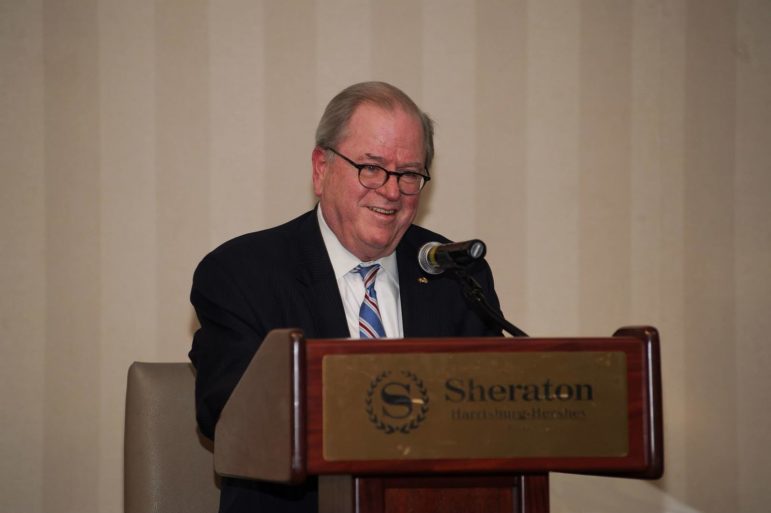
June 9, 2016; U.S. News & World Report
In a 5-3 opinion, the U.S. Supreme Court voted in favor of vacating Terry Williams’s death sentence on the grounds his sentencing was tainted by the possibility of judicial bias, with Justices Samuel Alito, John Roberts, and Clarence Thomas dissenting.
Ronald Castille, who retired in 2014, was the Philadelphia district attorney who had originally approved a prosecutor’s request to pursue the death penalty in a 1984 murder of a 56-year-old man, for which an 18-year-old Williams was convicted. According to Thursday’s SCOTUS decision, Castille violated Williams’s due process rights years later during a hearing on Williams’s death sentence when he refused to recuse himself from his position as Chief Justice of the Pennsylvania Supreme Court. As such, the decision establishes that a judge that has “significant, personal involvement” in a case may constitutionally be required to recuse him or herself.
“Bias is easy to attribute to others and difficult to discern in oneself,” wrote Justice Anthony M. Kennedy in the majority opinion, and judicial bias is what the court found. Justice Kennedy was joined by Justices Ruth Bader Ginsburg, Stephen G. Breyer, Elena Kagan, and Sonia Sotomayor.
Almost 30 years after his conviction in 1986, in 2012, Williams requested a stay of execution through the Pennsylvania Post Conviction Relief Act (PCRA), citing several allegations of prosecutorial misconduct, including suppressing exculpatory evidence. The Pennsylvania Court of Common Pleas found the trial prosecutor had committed prosecutorial misconduct and granted a stay of execution, which was appealed and brought before the Pennsylvania Supreme Court. At the time, Castille was serving as the chief justice and refused to recuse himself when asked by the defense, without explanation. The state Supreme Court voted unanimously in 2014 to vacate the lower court’s decision and reinstate Williams’ death sentence.
The opinion does not say that Castille harbors judicial bias, but questions whether “the average judge in his position is ‘likely’ to be neutral, or whether there is an unconstitutional ‘potential for bias.’” In this case, the due process clause of the Fourteenth Amendment was violated because Castille had personal involvement in the case in his capacity as the district attorney in Philadelphia. Specifically, given the nature of the appeal arguing prosecutorial misconduct had occurred in this case, Justice Kennedy argued it would have been difficult for a judge not to see the hearing as a criticism of his time in office.
Sign up for our free newsletters
Subscribe to NPQ's newsletters to have our top stories delivered directly to your inbox.
By signing up, you agree to our privacy policy and terms of use, and to receive messages from NPQ and our partners.
“No attorney is more integral to the accusatory process than a prosecutor who participates in a major adversary decision,” writes Justice Kennedy in the opinion. “As a result, a serious question arises as to whether a judge who has served as an advocate for the State in the very case the court is now asked to adjudicate would be influenced by an improper, if advertent, motive to validate and preserve the result obtained through the adversary process.”
According to the opinion, Castille’s previous involvement seeking the death penalty in Williams’ case does constitute “significant, personal involvement.” Moreover, given the consequences of seeking and obtaining the death penalty, the opinion holds that “a responsible prosecutor would deem it to be a most significant exercise.” Castille responded to Thursday’s decision and said his role in the Williams’ cases as “merely procedural,” rebutting that it could be construed as “significant.”
“It’s the liberal wing of the court, changing the law that was pretty clear before,” said Castille in response. “I’m surprised Kennedy was part of it. He usually understands these criminal justice cases.”
Williams’s appellate lawyer Shawn Nolan, however, celebrated the decision. “Today, Terry Williams comes one step closer to the new, fair sentencing hearing he deserves,” said Nolan, who is also the chief of the capital habeas unit of the Federal Community Defender Office. “We’re optimistic that the Pennsylvania Supreme Court will give this case careful consideration and recognize the injustice of Terry’s death sentence.”
The case itself raised an important question of the procedures and guidelines surrounding judicial recusals. As noted by Richard M. Re from SCOTUSBlog in February, the decision inherently will affect how all judges with governmental experience, including U.S. Supreme Court justices, approach conflicts involving their prior service and the circumstances under which they would have to recuse themselves. Re also astutely recognized that this opinion is narrow, perhaps given the uniqueness of Williams’ case and because “significant, personal involvement,” is somewhat already followed by courts. However, he writes, “Today’s decision might do more than increase the frequency of recusals and recusal motions. In time, it might—or might not—come to be seen as an important step toward constitutionalizing recusal law.”—Shafaq Hasan












